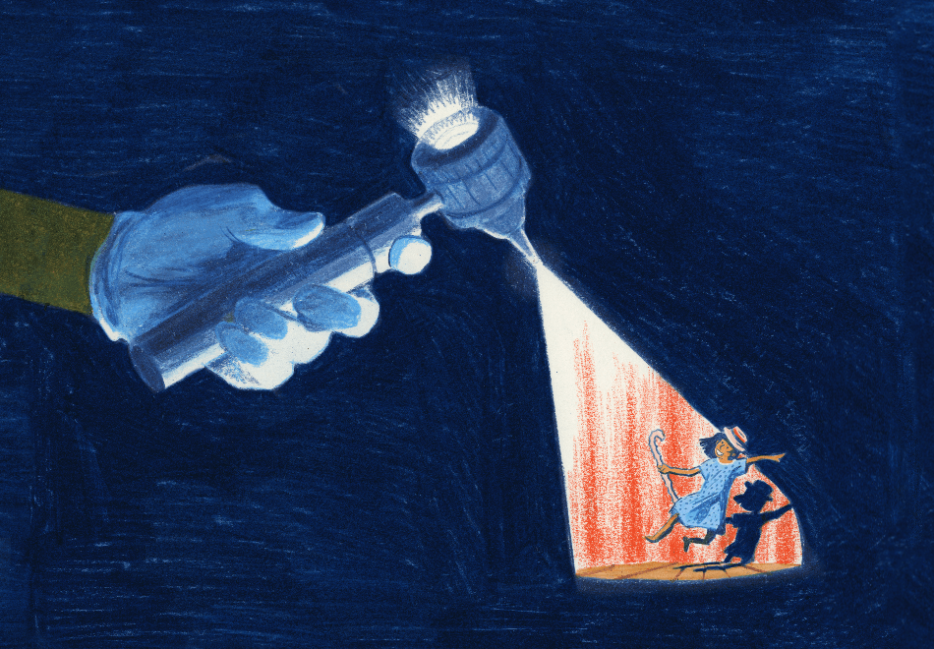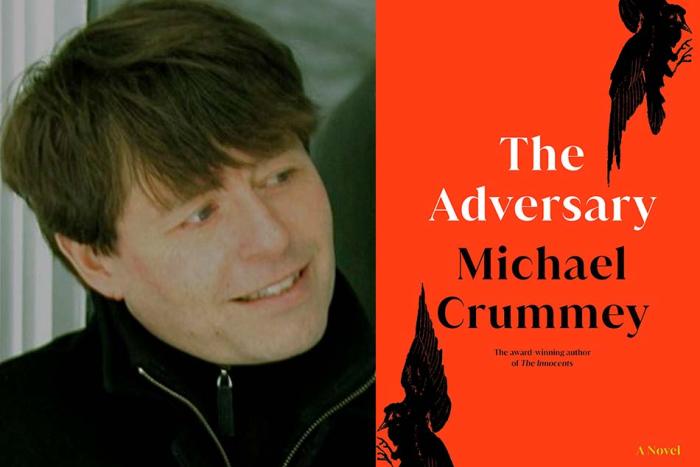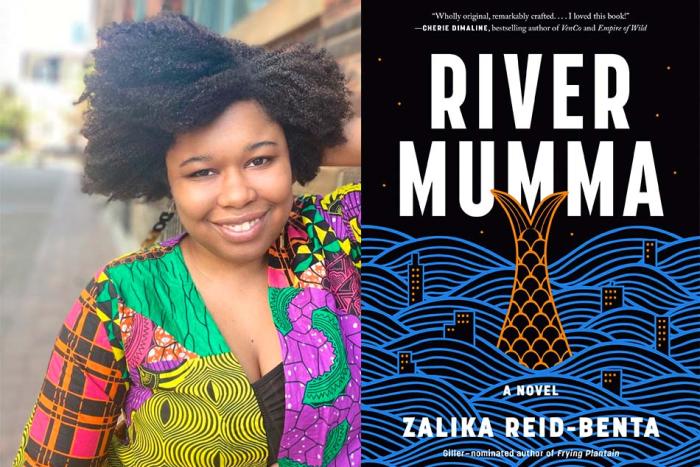It’s April 2021, the start of India’s deadly Covid-19 Delta wave. I am standing in the parking garage of a hospital in North Goa. Hospitals around the country are so overburdened that doctors have begun to plead for oxygen supplies on social media. Here, the Covid wing has spread to the garage. Patients are being treated with IV drips on makeshift beds where cars were once parked. I am trembling with fear. I have tested positive for Covid. I haven’t socialized with anyone in over a year, I have N95 masked, and yet here I am.
Standing next to me is the doctor overseeing the Covid wing. We’re waiting for the results of my chest CT scan. I’ve never met this doctor before, and if my scan is clear, I hope I won’t need to meet him again. The CT was ordered because I’ve been struggling to breathe, and in these five minutes of apprehension, it would make sense to try to fill my lungs the best I can. Instead, I’m doing everything in my power to get the doctor to like me. I’m asking about his time here, listening closely to his responses, being self-deprecatingly funny. I’m barely aware of it, but I’m giving it my all.
I’m not a people pleaser. If anything, I’m a fairly unfriendly person. I have proudly never cared whether people like me. I have close and steady friendships, but making myself palatable to strangers and acquaintances has never been my interest or my forte. And yet, in this terrible place, waiting for the scan results, my heart racing with anxiety, I want this doctor to like me. I need him to like me.
And he’s not the only one. In fact, he’s just the latest in a long line of medical professionals whose approval I have sought.
I leave the hospital-garage that day with a clear scan. But the incident stays with me. What went on in those five minutes? Whatever it was, it’s been going on for the past nine years, too.
*
At the end of 2013, I developed a headache that never quite went away. Halfway through 2014, I began to get unexplained bouts of dizziness. I felt like I was walking on a rocking boat. By the start of 2015, I was too dizzy to walk, and chronic fatigue had set in. Since then, I have seen three GPs, two ENTs, one ophthalmologist, one neurologist, one headache specialist, three acupuncturists, one naturopath, one shiatsu masseuse, two physiotherapists, one orofacial surgeon, three ayurvedic doctors, one chiropractor, one chronic fatigue coach, two therapists, one gynecologist, one energy healer, two yoga teachers. I traipsed in and out of each appointment wavering between hope and despair, hearing the same thing in different forms: I was “young and healthy” and everything “looked fine.”
Among the many things that start to fray when you live with unexplained chronic illness (autonomy, nerves, confidence) is the value you once placed on your own knowledge: on your ability to gather information and implement it in ways that are meaningful. What was my knowledge, after all? An English literature honours degree with a focus on psychoanalysis as a way to read texts. An activist’s understanding of how education cuts were privatizing the UK’s university system. A party girl’s know-how of the best way to get through a packed dance floor to the DJ booth. The things that I knew now seemed utterly useless. It was into this space of uselessness, of helplessness, that medical professionals brought their insight. Oh, how much they knew! Patronizing, caring, well-intentioned, indifferent, insightful, dismissive, they knew and knew and knew.
Is it therefore entirely unsurprising that I have deeply loved many of my doctors? After all, who among us has not submitted to a power dynamic while fully knowing it exists? And yet it feels weird—not because I’m unaware of how doctors can exploit hierarchical imbalances, but because of my personality. Someone I went to school with once told me she wasn’t scared of me, per se. It was “just” that, “If there was a chair available next to you during school assembly, we knew not to sit in it.” Just. Turns out a lifetime of not caring whether people like you earns you a reputation.
But when it comes to my doctors, not only do I want them to like me—I want them to like me the most. I want to be the favourite patient.
*
It’s 2019, and I’m sitting in the well-lit Bombay clinic that’s become my second home. The large leather sofas I fold myself into, the abstract art I’ve practically memorized, the receptionist who is from Goa—where I live—who reminisces with me about her childhood. After a short wait, Dr. R emerges from a consulting room, bidding a patient goodbye. She turns to me, her eyes shining. “I’m so happy to see you!” she says, as she pulls me into a close, tight hug. I laugh as we walk into the consulting room. “I bet you say that to all your patients,” I counter, not for the first time. “No way! Didn’t you see me with the last one? I was like, ‘Okay, bye!’ I was just waiting to see you.”
I have so many reasons to believe her, despite my better judgment. Or maybe just one: that I’m so happy to see her, too.
In 2016, after years of floundering in the quicksands of chronic illness, I met Dr. R. An orofacial surgeon and pain management specialist, she’d sent me into yet another MRI machine, but this time, with a clear focus: my jaw. For the first time in three years, a major test came back with concrete results. The report read, in various places: Severe. Severe. Severe. My jaw was severely dislocated, and in the years it had gone undiagnosed, my neck and shoulder muscles had simultaneously tightened and wasted away trying to compensate, tiring me out to the point of chronic fatigue. Meanwhile, the pressure on my ears (major balance centres that sit right next to the jaw) had led to the terrible dizziness whose origins no doctor had previously been able to pinpoint.
An actual diagnosis! With a clear-ish path forward! It’s obvious why I loved Dr. R from the get-go, but I also really love her. She’s emotionally astute, only a few years older than me, with a relaxed and hopeful outlook I don’t share. She makes the wildest analogies to explain anatomy (“Imagine a brittle branch,” “Think of an avocado inside a water pipe,” and my favourite: “Picture a piano going into your mouth”). Over the past seven years, we’ve chatted about everything from the rise of fascism in India to makeup brands to my love of narcotics and her love of the beach.
Dr. R has seen me through some of the hardest things in my life. In 2018, I lost one of my two beloved cats, and soon after, the other began experiencing similar symptoms. When I next saw Dr. R, I paid my own health little heed, and instead obsessively discussed my cats, even showing her their blood reports. Every appointment began with her concerned question: “How is your cat?” She texted me details of vets and animal communicators, one of whom diagnosed her own dog with a tumour when all conventional vets had failed to do so. She had tears in her eyes when she spoke of that loss.
Over time, our connection transgressed the traditional boundaries of a doctor-patient relationship—or rather, what I believed was possible within it. It felt like making a new friend. As you stack up the number of hours spent together—and we stacked up a lot—something begins to shift inside each of you.
I don’t know what made her like me. Maybe it was that during a first set of painful myofascial injections in my neck, I described the process as akin to being deep inside a k-hole (she still references this with a delighted laugh). Maybe it was my consistent stream of self-deprecating humour. Or that I tried so hard to get better, when I was so very sick. Or that we were both young, and I believed in her so much.
In 2019, she expressed a desire to reach more people suffering with chronic illness, but also a shyness concerning publicity. Having been on public social media myself since 2012, I offered to help. One evening, we met in a café. We had tea and shared a blueberry muffin. She brought a brightly patterned journal to take notes.
Later that year, after I had a terrible bout of food poisoning, she offered to give me B12 injections at her home, which she shared with her large joint family. I saw her daughter’s playroom, had a nimbu pani on her sofa. In 2021, she carried my new jaw splint to Goa when she was visiting on holiday, and we hung out for two hours in the sunshine.
Surely she doesn’t do this with all her patients, right? Surely I’m her favourite.
*
In an essay on the art of recovery, British physician Gavin Francis writes: “The word ‘doctor’ comes from docere, meaning ‘to teach’ or ‘to guide’, and just as every teacher you’ve ever had works with a different style, so does every doctor. The idea that there’s a universal approach every practitioner should adopt is false, and would be a terrible way to offer medical care.”
This makes intuitive sense to me. There is no Human Body; instead, there are billions of human bodies, minds, and personalities, all existing within varied human socio-political-cultural contexts. Francis goes on to write that “Within modern medicine, this creates a conflict, between an idea of a clinical encounter that should be measurable, reproducible and thus open to professional regulation of standards, and the idea of the clinical encounter as an alchemy that combines the experience of two human beings in an unrepeatable moment that changes both of them.”
I send the piece to Dr. P, the other half of my medical team, with whom I often feel these moments come to life. I wonder—does she feel them too?
A physiotherapist specializing in dizziness and balance disorders, Dr. P came into my life via Dr. R, the two working in tandem ever since. When I met Dr. P in 2016, I could barely pick up my cat or walk twenty metres unaided. Today, despite a whole lot of ups and downs, I can do much more. A friend with chronic illness who also sees Dr. P described her as “the only doctor who should be in the profession.” She deeply understands pain and limitations, and how to gently push at them. She’s encouraging and methodical, and will never rush an appointment, no matter how chaotic the waiting room grows. She helps her patients to believe, as Dr. Francis writes, that “where there’s change, there’s hope.”
Dr. P and I meet once a week on Zoom: we’ve done balance exercises, resistance training and, after I developed long Covid in 2021, a months-long breathing rehabilitation program. But these weekly meetings are also meetings: we encounter one another. She witnesses me, week in and week out, in my life: the critically sick kittens I rescued, my writing aspirations and frustrations, my rage at the government. In turn, I witness her, too: bereavement, anxiety, anger, despair. She reads all my work, and responds meaningfully each time. She sends me the art she does to help her relax: it’s wonderful, an insight into her inner world.
Isn’t this Francis’s alchemy, the unrepeatable moments between doctor and patient that go both ways? Dr. P texts me after she reads his piece: “I don’t know how to describe it, but what we have is special.”
*
In May 2022, two weeks before my thirty-fifth birthday, I felt something familiar—something that I believed to be far behind me. My jaw started to feel heavy, the pressure of it blocked my ears, and I grew unsteady on my feet. My stomach was a pit of dread.
This was not supposed to happen. I was in the middle of a good year. My muscles were strengthening, I could easily walk over a kilometre, I was less reliant on the jaw splint, and my breathing post-Covid had returned to normal. I’d had the sensation of walking an assured path, bolstered by agreement and praise from Dr. P and Dr. R.
And then, it all fell apart.
My jaw had inexplicably developed severe spasms, leaving me in acute pain, barely able to hold a conversation. My dizziness had skyrocketed: forget walking—I was barely able to look at the text on my phone screen. Chronic illness isn’t linear, because lives and bodies are not linear. This knowledge doesn’t make it any easier to cope with the reality. I was not coping. It was as though I’d fallen through a wormhole and ended up in 2016, an erasure of all I’d worked so hard for since then.
I called Dr. R, who was in the midst of a difficult personal health scenario herself, and unable to go into the clinic. She made suggestions. They didn’t work. I called her again. We spoke on FaceTime. We tried new approaches. They didn’t work. I called her again. She couldn’t take my call. I knew I was being a pest, but I was also crying myself to sleep every night in pain and despair. I called her again. I messaged her. She was sorry, but she was struggling.
Meanwhile, Dr. P and I tried to stabilize the muscles supporting my jaw. We worked on basic balance exercises, the kind we hadn’t needed for years. I was wildly sad and angry. I demanded answers, which, despite her best attempts, never came in the form I wanted. Because what I wanted was not to be in this position at all.
When Dr. R and I finally met up two months later, she examined me and came up with a plan of action, radiating sympathy. Meanwhile, I couldn’t stop apologizing for the intensity with which I’d been contacting her. “I wanted to be your favourite patient, and I ended up being your worst patient.” I could hear the plaintiveness in my voice. “Richa, you are my favourite patient.” She said it with feeling, but obviously it wasn’t true, or not in the sense I aspired to.
What I want is for my doctors to look forward to seeing me—and I mean truly me. Being in pain is a terrible, personality-crushing place to be. It makes you desperate and needy, strange to yourself. I want my doctors to see and address that pain, but I also want them to see past it, to see who I am underneath.
I want to be known and loved by them in a way I can’t access, but continue to claw at: as someone who isn’t sick. I want to know them on equal terms. I want to distinguish myself from their long appointment sheets of need and pain by not really being a patient at all.
*
When I was younger, the compliment I sought most from boys was: “You’re not like other girls.” How I craved it! The premise was, of course, that there was something inherently bad about being a girl, and by not being like the rest, my chances in a patriarchal world were much improved. It’s the same with being a patient—if you’re stuck as one, it’s better to be as different from the others as possible.
Over the years, I have often wondered why I so urgently want to be my doctors’ favourite. The most obvious reason is that if doctors like me, they’ll treat me better. There is an undeniable truth to this: doctors’ biases and prejudices often show up in differential treatment. Even if I tell myself it isn’t true for my doctors, surely at some level I know it could be.
At first, my leading theory was that I’m an A+ student, in this as everything else. My doctors give me balance exercises, so I do them religiously. They propose a gluten-free diet, and I ferry beetroot pasta from Bombay to Goa. When there’s homework, I look for extra credit. But if I’ve substituted doctors for teachers, the conjecture falls apart. I was never invested in being the teacher’s pet. I always wanted to be at the top of the class—not the favourite so much as the best.
My partner’s theory is that I have Stockholm syndrome, doctors edition. I’m trapped in their world, and instead of resenting and mistrusting them, I’ve become obsessed with them. There’s some truth to this, too: if I weren’t perpetually stuck in their clinics, in their waiting rooms, at their mercy, I would be free. Instead of freedom, I’ve found love. It helps that like true kidnappers, they keep me oriented toward a hopeful future where—if I follow all their rules—I may one day be liberated.
And yet I can’t help but feel like there’s something else going on.
*
I’ve always told myself I don’t want to be liked, but now I’ve begun to wonder if that’s really the case. Maybe I don’t care if people—that general, amorphous mass—like me, but I do very much care if individuals who I like return the sentiment. What’s more, I assume that if I do the right things, they will. But when it comes to doctors, what constitutes the right things becomes confused by the wrongness of being sick in the first place. Being a patient isn’t a nice thing to be. What leads you there is an undesirable condition—one that leaves you open to being read as undesirable yourself.
In situations where I may not be seen as appealing, I tend to act like I don’t care. In fact, I’ve been doing it for so long that I’ve come to believe that I don’t care. Likeability? That’s for losers. But living as a chronically sick patient—among a waiting room full of losers, the bottom rung of the middle school pecking order of health—has shown me how fragile and untrue my supposed aversion to likeability is. And how—contrary to my own self-perception—extremely hard I will work to be liked back.
For the doctor-patient relationship is not just hierarchical, but highly one-sided in its intensity. My doctors are a deep, integral part of my life; I, on the other hand, am a part of their job. This sounds obvious, but it physically pained me to write that sentence, and I still can’t bring myself to fully believe it.
There is a lot of evidence that suggests we can’t heal alone. That the hyper-individualism of modernity and wellness culture is not a path to recovery. We are social creatures, and to heal we need to be held. But by whom, and how?
I am lucky to be surrounded by a thriving community. I am deeply cared for. I have not lost lifelong friends to chronic illness; rather, they work around my needs. I have newer friends with chronic illnesses, too. My family and partner prioritize my wellbeing and provide more care than I could have dreamt I would need before extremely old age.
And yet, no one really gets it: the confluence of my intersecting symptoms and how they shape my life. The unsolvable injustice of my illness. Except, maybe, my doctors. They can tell the difference between a jaw swelling and a spasm. Between a spinning room and a rocking boat. They know why I can turn my head only so far, and what happens if it goes farther. They hold me with their understanding, and in doing so, they show me a path to heal. And the idea that the only people in this wide world to whom I can turn for this understanding are being paid to provide it feels almost as unfair as the illness itself.
So I hide the transaction from myself. I gather their compliments, their text messages, the intimacies they share with me. I shelter under them, use them to convince myself I am not playing out the oldest plotline of all time: unrequited love. That the reason I am offered care and understanding isn’t simply monetary. My longstanding doctors are somewhat close to me, I believe that, but how close? I want the measure of the thing, and the only way I can conceive of getting it—since there will be no drinks, dinners, late-night confessions, all the classic signs of proof—is to become the favourite.
Because if I’m the favourite, then maybe I can escape the terms of the relationship. I can enter an encounter in which what a doctor gives me, they give freely, because they like me—the way I give my time, understanding, and empathy to those whom I like.
Does this delusion contain within it the hope for a more equitable world that has care at its heart? One in which doctors are able and willing to be in relationship with their patients as equals; in which they see the potential, as Ada Limón writes, to “be made whole by being not a witness, but witnessed”? I like to think so. But it may simply be the desire of someone living with chronic illness for nine years looking for an escape hatch—a strange solace in the cards they’ve been dealt.






